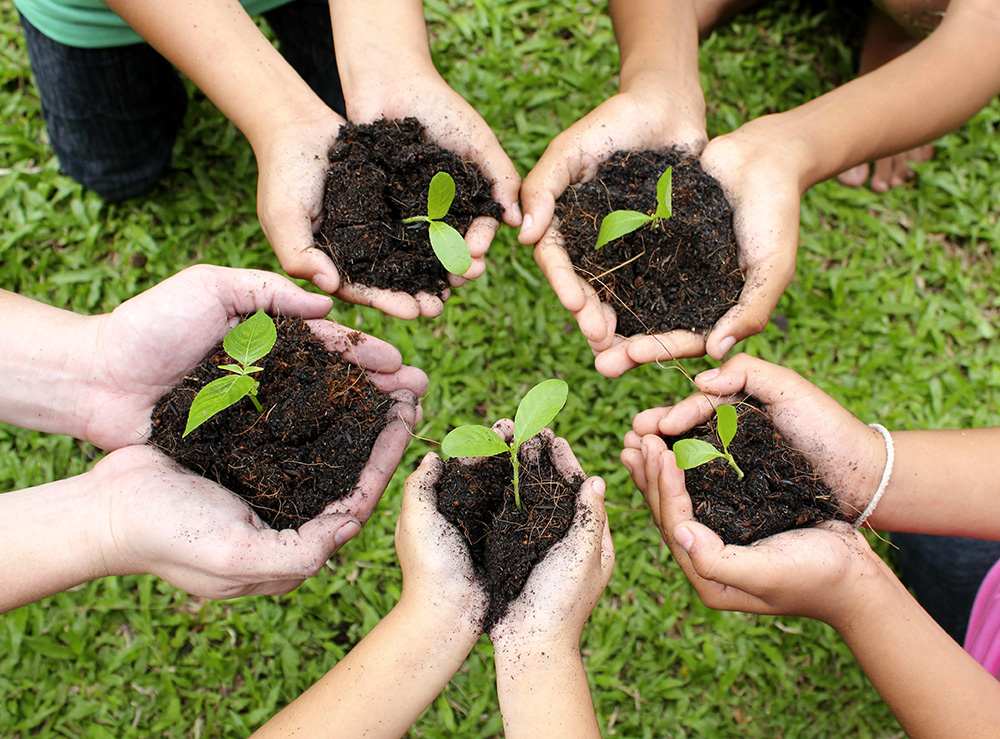Creating Community for Ecological Civilization
by Ebony Bailey and Ellie Leaning
As we approach the 50th anniversary of Earth Day on April 22, we have a unique opportunity to reflect on our lives and our relationship with the planet. The COVID-19 global pandemic has exposed systemic failures in the health, economic, political, and environmental sectors—failures that we, at EcoCiv, have focused on since our inception. At the same time, this crisis has also prompted us to reassess the ways we interact and engage with other humans, other species, and the environment around us. In what ways can we build community and “carry each other’s burdens”? What does “community” really mean and what are its boundaries? How can we come up with solutions for systems change? How can individual actions prompt systems change?

Creating community is an essential step in working toward global systems change. In this season of social distancing, we are coming up with more creative ways to build community. Friends and family who live apart are finding more ways to reconnect despite physical distance. Various groups and individuals are organizing to support frontline workers. People from all over the world are planning virtual gatherings and conferences to discuss the brewing changes and impacts in multiple sectors in light of COVID-19.
Today’s global crisis has prompted many people to feel a clearer sense of shared experience across the world. This shared experience, while similar in its fear of the pandemic, is lived differently depending on one’s privilege. This shared experience can provide a bridge for solidarity and community despite differences, as privileged populations imagine what quarantine would be like in an informal settlement, what handwashing for twenty seconds would be like at a shared tap, or what “shelter-in-place” would mean if you don’t have a home. Among many communities of people, there is a growing sense of collective responsibility, a need to come together in this time when we are physically apart. There is a distinct awareness that systems have failed.
Now is the time to reflect and ask how our communities can work together towards ecological civilizations. In the short term, what can we do in our homes – with our loved ones – to ensure a more sustainable world for all? In the long term, how can we restructure our communities and systems so that wellbeing is favored over profit? In what ways does “community” expand to include non-human species and the environment?
Much work and thought have been put into creating new communities, as well as restructuring older ones. Asking about the conditions for sustainable civilization requires one to explore the potential of ecovillages, the impact or concept of “sustainable development” (as it is currently called), and emerging communal structures such as urban homesteading and urban agriculture. Transportation options, town planning, social structures, social enterprise, communal and spiritual values all play roles in developing the kinds of sustainable communities that would have to comprise an enduring civilization. Policy recommendations will address the extreme privatization of public goods, use of public monies, and policies that promote or undercut particular types of communal arrangements. Community is the basis for any work towards systems change and ecological civilization. At EcoCiv, we will be providing opportunities for people to engage during this time of great change, so that, together, we can build community.
